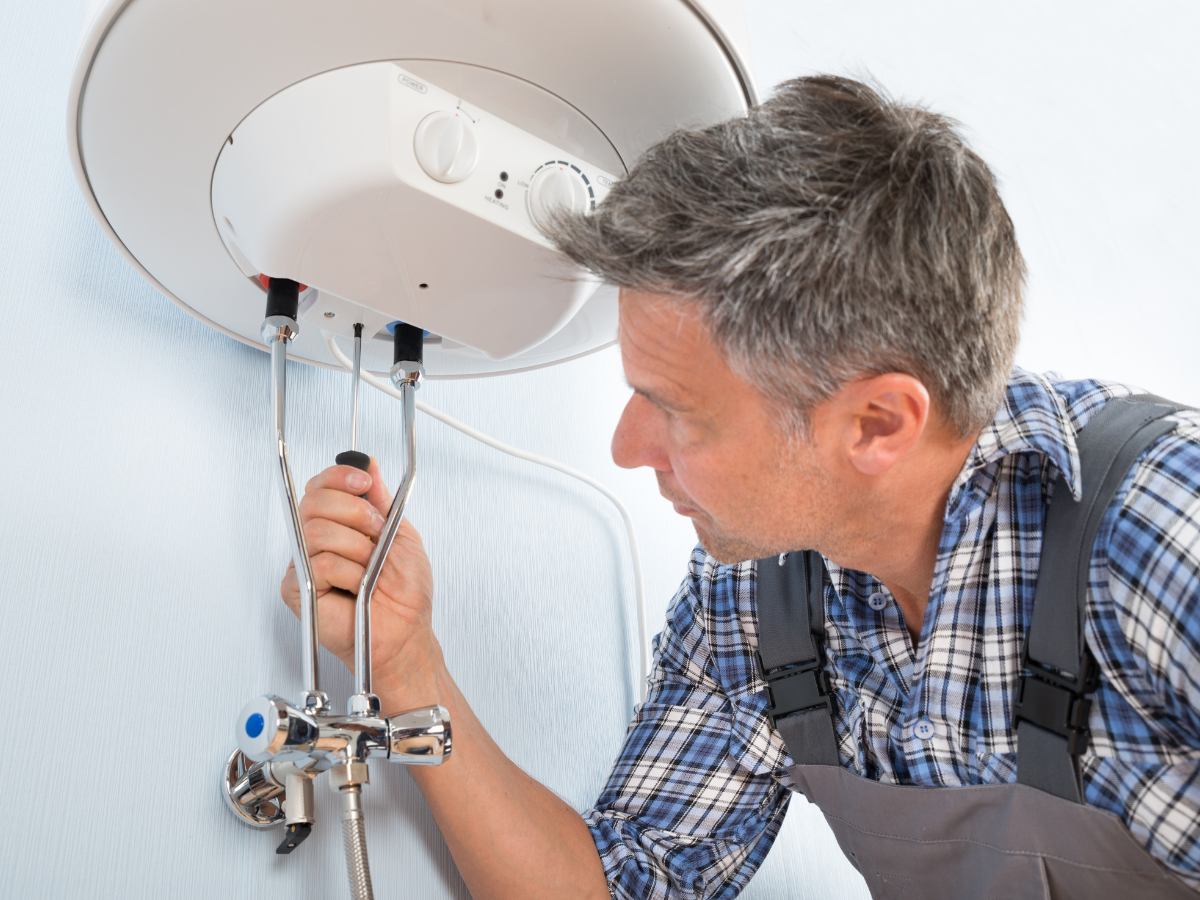When it comes to household conveniences, a well-functioning water heater is at or near the top of the list for most Milwaukee-area homeowners. There’s nothing like hot water to clean those dishes, soak those sore muscles or wash those hands.
That’s why we at Flow-Rite Plumbing believe it’s important to recognize when your water heater might be signaling for help. Ignoring these seven signs can lead to more significant, costlier problems down the line:
Unexpected Changes in Water Temperature
If your morning shower is more of an icy surprise or a scalding danger than the warm welcome you expect, it’s a clear sign something’s amiss with your water heater. Sudden temperature fluctuations often point to a malfunctioning thermostat. A water heater’s thermostat might malfunction due to sediment buildup, electrical issues, or wear and tear over time, preventing it from accurately regulating water temperature and requiring the services of a professional plumber.
Murky or Discolored Water
When you turn on the hot tap, the water should be clear. If you notice rusty or murky water, this could mean corrosion inside your water heater tank or the pipes. Corrosion can occur when the protective anode rod (a magnesium or aluminum rod that attracts the corrosive elements in the water, thereby corroding itself instead of the tank) degrades over time, allowing the steel tank to react with oxygen and water, leading to rust and deterioration. This is not just unpleasant; it can harm your health and the longevity of your plumbing systems.
Unusual Noises from the Water Heater Tank
A healthy water heater operates quietly. However, an accumulation of sediment at the bottom of the tank can cause banging or rumbling noises during heating cycles. Sediment naturally occurs when minerals like calcium and magnesium separate from hard water as it is heated and sink to the bottom of the tank. This sediment can drastically reduce your heater’s efficiency and, if not addressed, can lead to tank damage.
Water Around the Water Heater
Moisture or pooling water around your water heater is a telltale sign of a leak. Leaks can originate from fittings, connections, or even the tank itself. Because water damage can escalate quickly, it is essential to contact a water heater plumber to investigate and resolve the issue.
Longer Heat-Up Times
If you’re waiting longer for hot water or the water doesn’t stay hot as long as it used to, there may be an issue with an internal component like the heating element. This can happen due to mineral buildup, corrosion, electrical issues, or prolonged wear and tear. A plumber can often diagnose and fix the problem on the same visit.
Age of Your Water Heater
The typical lifespan of a water heater is about 8-12 years due to various factors, including mineral buildup, corrosion and the constant high internal pressure under which it operates. If yours is approaching or has surpassed this age range, it’s wise to have a plumber assess its condition. They can advise whether it’s more cost-effective to repair or replace your water heater based on its current state.
High Utility Bills
An unexpected rise in your utility bills can often be traced back to an inefficient water heater. As water heaters age or malfunction, they work harder to heat water, consuming more energy and costing you more money.
Don’t Wait to Call a Water Heater Plumber
Recognizing these signs early can save you from the inconvenience of no hot water or severe water damage to your home. If you notice any of these issues with your water heater, don’t hesitate to call Flow-Rite Plumbing in Milwaukee. Our water heater plumbers are ready to help you with fast, effective solutions that restore your peace of mind and the comfort of your home.
Contact us today to discuss your water heater’s needs and ensure you’re never left in the cold.





